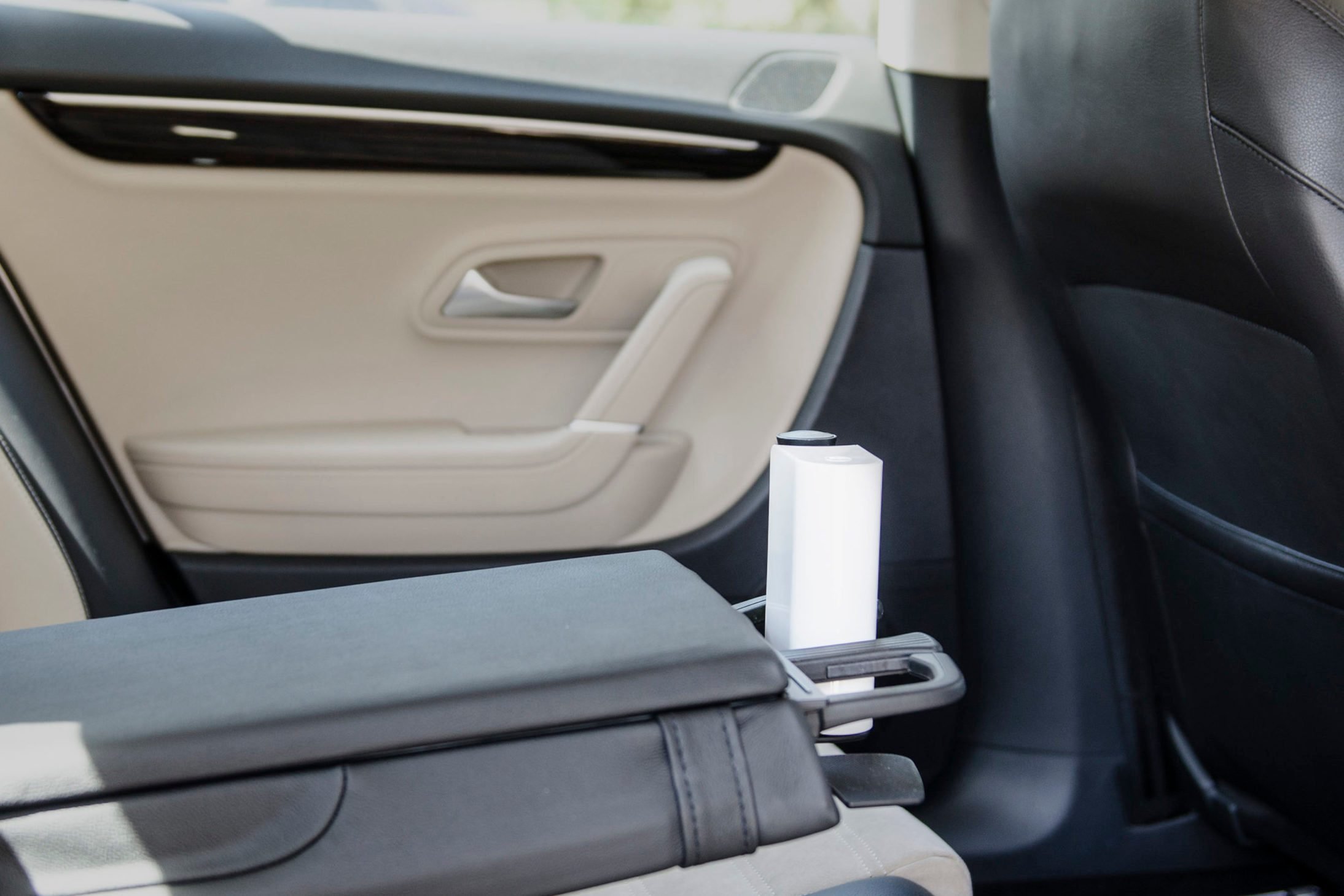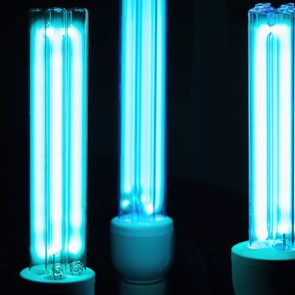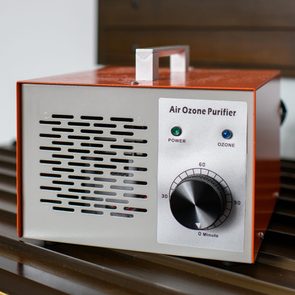Do Car Air Purifiers Really Work?
Updated: Mar. 17, 2022
Allergens, odors, pollution, and Covid-19 are just a few reasons you may want a car air purifier. But whether it will work depends on the type of purifier and what you want it to remove. Here's everything you need to know.
Why the air in your car matters
Let’s face it: We spend a lot of time in our cars. Whether it’s shuttling our kids to school and after-school activities or commuting to work, our vehicles often become a second home.
According to the 2019 Daily Ride Index by communications firm Ketchum, Americans spend almost 11 hours in their car per week. That means the quality of the air in our cars matters.
And while some people have spent less time spent in their cars with the Covid-19 pandemic, the virus brings up a new concern: How do you stop Covid-19 from spreading if you’re riding in a car with other passengers?
Compared to other indoor spaces, like homes, car interiors have unique air-quality concerns, according to a study published in AIMS Environmental Science. Their small size plays a role, but it’s not the only contributing factor. The manufacturing process of the car itself, passenger behavior, and the outdoor air that comes inside all affect air quality.
New-car smell
Some people love it and some people hate it, but there’s no question new cars carry a certain scent. Unfortunately, the new car smell might not be that good for you. A recent study in Environmental International found that most commuters in California are exposed to levels of benzene and formaldehyde, used in car manufacturing, at levels that exceed cancer-causing thresholds.
Outdoor air pollution and cars
Driving in urban areas with your windows down or your ventilation system set to bring air in from outside can lead to high particulate pollution levels in your car, according to a 2016 study in Environmental Science & Impacts. These airborne particles have been linked to poor health, such as respiratory illnesses and cardiovascular disease. Your car does have an air filter for the cabin, but you have to change it regularly to make sure it’s doing a good job—and the filtration won’t be as thorough as that of some types of air purifiers.
Odors and cars
Cars are notorious for locking in bad smells. think of a smelly dog, sweaty sports equipment, discarded food, and tobacco smoke—all these can make the air in your car less than fresh. If any of those scents ride along with allergens (like the dander on that smelly dog or the tobacco smoke particles), they can circulate in your car’s air and irritate allergies and asthma.

Types of car air purifiers
If you’re shopping for an air purifier for your car, it’s important to pay close attention to what technology it uses to make sure it will do the job—and won’t harm your health.
Ionizer car air purifiers
Many car air purifiers use ionization. These purifiers often work by plugging into the cigarette adapter. Other times they are compact devices that can sit in a cup holder or similar spot in the car and are powered by USB.
Rather than using a filter, ionic air purifiers rely on a chemical process in which they emit negative ions to create charged particles. These charged particles attract oppositely charged particles and accumulate, becoming heavy and falling from the air, explains Emily Jones, a researcher in the Healthy Buildings program at Harvard University’s T.H. Chan School of Public Health in Boston.
While ionizers do tend to do what they advertise—they take allergen particles out of the air—there are two caveats. For starters, they don’t remove the particle from the environment entirely. When the particles fall from the air, they land on surfaces (your dashboard or floor, for instance). But unknowingly rub against them and they could be resuspended, says Richard Shaughnessy, program director of the University of Tulsa Indoor Air program.
Another downside is that, as part of the ionization process, ionizers have the potential to emit ozone as a byproduct, which is a respiratory hazard, according to the Environmental Protection Agency (EPA). (Here’s what to know about ozone air purifiers.)
HEPA filter car air purifiers
Other car air purifiers use a high-efficiency particulate air (HEPA) filter to remove particles from the air. HEPA filters are considered the gold standard in air filtration and are effective at removing 99.97 percent of dust, pollen, bacteria, mold, and airborne particles as small as 0.3 microns.
Air cleaners with HEPA filters don’t produce ozone, although some include ultraviolent-C (UVC) light technology or ionization, and these features could produce ozone. (Learn more about UV air purifiers.)
HEPA-type air purifiers come in models that can sit in cup holders or attach to a part of the car, like a headrest, and may be powered by USB.
Do car air purifiers work?
Whether or not a car air purifier works depends on the type of purifier and what you are hoping to achieve with it.
Do ionizer car air purifiers work?
As mentioned, ionizers can remove particles like pollen, viruses, particulate pollution, and tobacco smoke from the air, but those particles will remain on the surfaces of the car and may end up in the air again.
According to the EPA, ion generators don’t remove gases or odors. This means they won’t help with smelly chemicals from manufacturing or the pungent odor of last week’s lunch.
Do HEPA filter car air purifiers work?
HEPA filter car air purifiers could be helpful if you are driving in urban areas and want to filter particulate matter, for instance. They may also help reduce pollen that is in the car during spring and fall, a big benefit for people with seasonal allergies.
HEPA filters don’t remove gases or odors, says Jones, unless they also have an activated carbon filter.
What else can I do to improve the air in my car?
Keeping the air fresh in your car is a bit of a conundrum. Changing your car’s cabin air filter at recommended intervals will help. You can also open the windows to cycle in outdoor air—but then you’re potentially letting in harmful pollution—or pollen, which can bring on allergy symptoms. Depending on the scenario you’re facing, there are other ways to improve the air quality in your car. Read on for tips.
Outdoor air pollution
If you’re driving through heavy traffic, keeping your windows closed and your ventilation fan off can reduce your exposure to toxic fumes, according to a 2016 study published in Environmental Science: Processes and Impacts. Having the fan on but set to recirculate indoor air, rather than bring air in from the outside, is also an effective way of reducing exposure. (Beware of these air pollution effects on the body.)
New car smell
If the chemicals from manufacturing trump pollution as your primary concern, follow the advice of researchers from the Environment International study: keep the windows open during car rides, if possible. “At least with some airflow, you’d be diluting the concentration of these chemicals inside your car,” says lead author Aalekhya Reddam, a graduate student in the Volz laboratory at the University of California Riverside in a press release.
Covid-19
Given the close quarters, Covid-19 has the potential to spread between passengers in a car. In a 2020 study published in the journal Science Advances, researchers suggest the best scenario when driving in a car with another passenger is to seat the passenger in the backseat away from the driver and to open the front right window and rear left window. This creates an air current that acts as a barrier between the driver and the passenger.
This would be the next best alternative to opening all windows and bringing in air from outside through the fan. Researchers note, however, that the measure they suggested is not a substitute for wearing a mask.
(These are the best air purifiers for viruses.)
Odors
When it comes to odors, Jones says rolling down the window can help. Air fresheners can mask the scent but may contain harmful chemicals, per a 2017 study in Building and Environment.
When it comes to smells, eliminating the source is probably your best bet. So while your car might be your second home, keep the sweaty sports equipment and last week’s lunch out of the passenger area, and definitely don’t trap it in there overnight.
Next, here are the best allergist-approved air purifiers for better air quality.


















